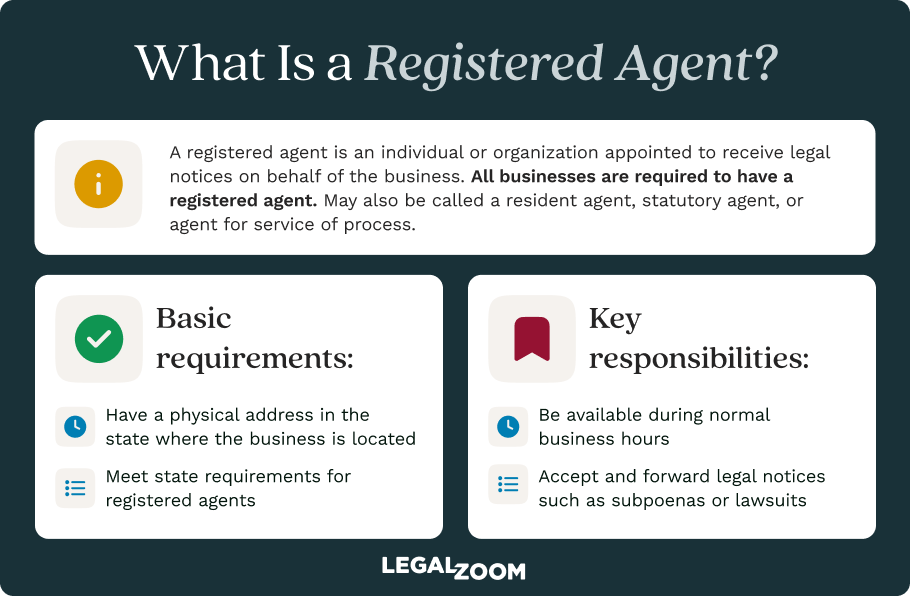There are a lot of advantages to starting your limited liability company (LLC) in New Jersey. With some of America’s most educated and skilled workforce, close proximity to major cities, ports, and airports, and a supportive business environment, the Garden State has a lot to offer aspiring business owners.
Forming a new business in New Jersey requires a few key steps, such as finding a legal and available business name, getting the correct licenses and permits, and appointing a registered agent. The steps below will help you start a New Jersey LLC and get confidently rolling on your business journey.
Benefits of forming an LLC in New Jersey
Limited liability companies come with many advantages, regardless of which state you choose to form them in.
Liability protections
Many budding entrepreneurs are drawn to LLCs because of the liability protections they offer. LLCs provide legal separation between the business and business owner, which can help protect your personal assets from any business debts you accrue.
Tax advantages
When you form an LLC, you also have the option to choose to be taxed as a sole proprietorship, partnership, C corporation, or S corporation. LLC owners who choose to be taxed as a sole proprietorship or partnership benefit from pass-through taxation, which means that owners pay taxes on any business profits on their individual income tax returns. This spares them from the double taxation that corporations are subjected to.
Management flexibility
Compared with other business structures, LLCs have fewer restrictions on how their business is structured, with no restrictions on the number of owners and flexibility in how profits are distributed among members.
Disadvantages of starting an LLC in New Jersey
New Jersey may have a few potential disadvantages for LLCs compared to other states. Income taxes in the state are among the highest in the nation, which is important to know if you elect to be taxed as a pass-through entity.
New Jersey also does not allow for anonymous LLC formation, and requires your personal information to become a part of public record. While this is similar to most other states, business owners who are looking for more privacy might consider forming their LLC in Delaware, Wyoming, New Mexico, or Nevada instead, as these four states allow for anonymous formation.
Step-by-step guide to forming an LLC in New Jersey
The formation of a limited liability company in New Jersey is governed by the Revised Uniform Limited Liability Company Act. The procedure for registration and formation is as follows.
Step 1: Pick and reserve a name for your New Jersey LLC
The journey to formation starts with selecting an available and legal business name. The New Jersey Division of Revenue and Enterprise Services (DORES), which is part of the Department of Treasury, requires the business name to be easily distinguishable from those already registered or reserved. For instance, The Good Butter and A Good Butter are considered deceptively similar business names.
New Jersey LLCs also have to meet the following naming requirements:
- Have an entity designator, such as “LLC,” “Ltd.,”, “Limited”, or “limited liability company.”
- Do not impersonate or insinuate association with a government agency, using words like State Department, CIA, FBI, or New Jersey Department of Treasury.
- Avoid certain restricted words such as bank, lawyer, attorney, or credit union—these require approval and appropriate permits.
- Do not use derogatory, racial, or offensive terms.
If you’ve found a unique business name that passes all the checks, grab it before it goes to someone else. If you’re not ready to form your LLC right away, the New Jersey Department of Treasury's business portal allows you to reserve the name for six months for $50.
In case you are struggling with finding a creative and catchy LLC name, LegalZoom has some tips on naming your business.
Step 2: Choose your registered agent
New Jersey law requires you to appoint a registered agent for your LLC. A registered agent is the person or entity authorized to receive service of process and other official legal documents and notices on behalf of your LLC.
The state allows you to be your own registered agent if you meet the following criteria:
- Are above 18 and a state resident
- Have a physical New Jersey address (P.O. boxes don't qualify)
- Are available to accept documents during normal business hours
While the duties and responsibilities of a registered agent sound quite straightforward, read why it’s best not to be your own registered agent.

Step 3: Get your employer identification number (EIN)
You can request that the Internal Revenue Service (IRS) assign a nine-digit federal employer identification number (EIN) to identify your New Jersey LLC for tax and other purposes. You can obtain your EIN by mail or online through the IRS website.
A federal employer identification number allows you to do the following:
- File and manage taxes at the state and federal level
- Open a business bank account
- Hire employees and pay employment taxes
- Establish business credit and secure funding
Forgetting to secure your federal tax identification number can cause issues with filing taxes, which can result in additional fines.
Step 4: Prepare and file your certificate of formation
The certificate of formation (commonly called articles of organization in other states) is a document that officially establishes your LLC by laying out basic information about it. This may be referred to the Public Records Filing on the New Jersey website.
Prepare your certificate of formation and file it with the New Jersey Division of Revenue & Enterprise Services Commission to register your New Jersey LLC properly. Though it sounds like a big job, it simply means filling out a relatively straightforward online form and submitting it. You must file your form at least 15 days prior to officially opening for business.
To prepare your certificate, you'll need the following information:
- LLC’s legal name and address
- Member or manager names and addresses
- Registered agent information (including name, mailing address, and email address)
- Optional: Employer identification number (EIN)
- Optional: Your NAICS business code and a general statement explaining your business
- Duration, which may be perpetual
- LLC formation date (New Jersey allows you to set a date in the future)
Once you file your certificate of formation, the Secretary of State will review the filing. If approved, your LLC becomes a legal business entity.
The state will issue you a digital certificate that confirms the LLC formally exists and is legal. This document is essential for next steps like securing business licenses and opening a business bank account.
Step 5: Create an operating agreement
An operating agreement is a document that outlines the way your LLC will conduct business.
While the Garden State doesn't require an LLC to have an operating agreement, it’s an important component that can help streamline management duties and settle disputes that may arise over finances and management interests.
Without an agreement in place, the New Jersey courts make determinations based on state law, not necessarily what is in the best interest of the LLC and its members.
To make the process easier, many entrepreneurs start with a professionally written New Jersey LLC operating agreement template. It’s an easier way to get your thoughts on paper—fast. But if your business has multiple members or unique circumstances, it’s well worth having a business attorney look it over or help you tailor it. That way, you’re protected now and in the long run.
The operating agreement can include, but is not limited to, the following:
- LLC name and principal address
- Purpose of the business
- LLC business structure
- Membership ownership interests (if there is more than one member)
- Member duties, responsibilities, and voting rights (if applicable)
- How decisions will be made
- The way profits and losses will be divided
- Procedure for admitting new members, as well as outgoing members
- Management of the LLC
- Indemnification and liability clauses
- Succession and dissolution plans
Building a business is enough work as it is. We'll help you start your LLC with confidence.

Step 6: Register for taxes
All business entities operating in New Jersey must register for taxes and understand their financial obligations to the state—which could be to collect sales tax, and pay income/payroll taxes. You can’t skip this step, even if you don’t foresee yourself collecting New Jersey sales tax or hiring employees.
You can register for taxes online using Form NJ-REG. To complete it quickly and smoothly, have the following details ready:
- Your unique 10-digit business entity ID (It will be on your approved certificate of formation, or you can find it by running a business entity search)
- An EIN from IRS
- New Jersey state business code
- North America Industry Classification System (NAICS) code
- Business mailing address
- Estimated business start date
After registering, you'll receive a Business Registration Certificate (BRC) and your New Jersey Tax ID. This Tax ID—which will be your EIN plus three digits—will be necessary to pay state taxes and get tax credits.
Step 7: Obtain business licenses and permits
It’s highly likely that your business will be subject to other legal compliance requirements, like securing the right licenses and permits. You can check the New Jersey Business Licensing and Certification Guide to help determine if your industry requires a particular license or permit. Proper licenses and permits not only ensure compliance with the state, but also show customers and employees (if any) that you are serious about safety.
Here’s an example of the types of business licenses and permits you may need in New Jersey, depending on the type of business you own:
- General business license. While New Jersey does not have a state-level general business requirement, many counties and/or cities will require this at the local level.
- Sales tax permits. If you plan to collect sales tax on goods and services offered by your business, you’ll need to apply for a sales tax permit or sellers permit through the Department of Revenue.
- Occupational licenses and permits. Many professions require special licenses or certifications. Examples include legal services, certain jobs in the medical field, cosmetology, auto services, real estate, and tax services.
- Location and land use permits. These can include construction permits (if you plan to do work on your business’ physical location), zoning permits, and sign permits.
- Health and safety permits. Many businesses like hospitals, restaurants, and hotels need permits from the health department to operate legally.
- Federal permits. Certain industries are regulated at the federal level and may require special licenses and permits. Examples include businesses in agriculture, aviation, firearms sales, meat production, and transportation.
This list is not comprehensive, so be sure to check with your local country clerk’s office to verify what types of licenses and permits you may be required to obtain.
New Jersey LLC costs
Expect to pay between $500–$2,000 to form a New Jersey LLC. Here’s an itemized list of factors you need to consider:
- Reserve a name. If you aren’t ready to file but have selected an LLC business name, you can pay $50 to reserve it.
- Filing fees. The cost of filing the certificate of formation is $125.
- Doing Business As (DBA). If you decide to run your limited liability company under a different name, you will have to pay $50 for an alternate business name with the New Jersey Division of Revenue & Enterprise Services. For instance, say your LLC's legal name is John Smith LLC. If you wish to run it as John’s Reads, you will need to apply for an alternate name.
- New Jersey partnership filing fee. If your LLC has more than one member, you may have to pay a partnership filing fee of $150 for each partner.
- Annual reports. Annual report filing fees are $75.
- Registered agent costs. A professional registered agent service can cost between $50–$300, based on the services they provide.
- Business licenses and permits. The cost of each license and permit depends on what kind of license you need and jurisdiction. The cost of each license or permit could range from $75–$1,000.
- Business insurance costs. The exact cost of business insurance depends on industry and size. According to MoneyGeek, general business liability insurance for an LLC in New Jersey is around $96 per month.
There may be additional costs if you decide to hire legal help for the formation process.
Starting a business takes courage. LegalZoom makes sure the legal details don’t stand in your way, from the day you register until the day you retire.

What to do after forming your LLC in New Jersey
Registering your LLC in New Jersey gives you a legal foundation to conduct business, but a few more housekeeping items still need your attention.
Register a domain name
Even if you don't think you'll need a webpage, you should reserve the option of having one in the future by buying a domain that matches your LLC’s name. You can find available domain names via GoDaddy or Bluehost.
While you are registering a matching domain name, go ahead and find a matching social media handle as well to create a cohesive brand identity.
Open a business bank account
A dedicated business bank account for your New Jersey LLC is key to clean books and accurate financial health. Using your personal account for business transactions can get messy and make tax time even more challenging.
Mingling funds can also backfire if someone challenges your LLC's status. For instance, it may raise questions like, "Are you and your LLC truly separate entities if you use the same bank account?" A dedicated business bank account is another way to demonstrate to the courts that you and your LLC are separate entities.
Understand federal and state tax obligations
New Jersey, because of its multiple specialty taxes and exemptions, has a complex tax structure. Below are some important tax considerations for New Jersey LLCs to help you plan your financials:
- Corporate business tax. LLC owners that elect to file taxes as a C corp are subject to this business tax. The tax rate varies based on income earned.
- Sales tax. If your LLC sells taxable goods or services, you must collect and report New Jersey Sales Tax. The current sales tax rate is 6.625%, but certain counties (for instance, Salem) have a reduced tax rate, while others (like Atlantic City) have a higher sales tax rate.
- Income tax. LLCs are considered pass-through entities by the IRS, and the owners report the profit and losses on their personal income tax filings. In New Jersey, personal income tax brackets vary between 1.4%-10.75%, depending on one's adjusted gross income and filing status.
- Self-employment taxes. Each LLC member must pay federal self-employment taxes of 15.3%, which includes Social Security and Medicare.
- Local taxes. Depending on your LLC's location, you may also be subject to local municipal taxes. These tax rates vary widely. So, it's important to check with a tax attorney or local authorities to identify applicable taxes.
A tax consultant can advise you on current tax rates. Or, you can reach out to the New Jersey Treasury's Division of Taxes.
Comply with New Jersey labor laws
If you plan to hire employees, you need to register with the New Jersey Department of Labor and Workforce Development. Study the state's labor laws or speak to an employer attorney to ensure your LLC complies with minimum wage, employment taxes, overtime, and workplace safety. Compliance minimizes the risk of legal battles and helps you establish credibility as a business owner.
Purchase business insurance
Business insurance not only protects your business from unexpected liabilities and lawsuits, but it also demonstrates your professionalism.
Here are some common types of business insurance you should consider:
- General liability insurance
- Professional liability insurance (if you are a professional limited liability company)
- Commercial property insurance
- Product liability insurance
- Workers' compensation (required for all NJ businesses who hire employees, with exceptions for some businesses covered by federal programs)
Obtain a certificate of good standing
While not required, a certificate of good standing is an excellent way to show customers and others that you’re a financially responsible and law-abiding business owner. It also helps build trustworthiness with vendors, investors, and financial lenders. You can get your business entity standing certificate online through the New Jersey Business Records Service.
Consider a foreign LLC
If you envision your business growing beyond New Jersey’s borders, you will need the legal authority to do so. Registering as a foreign LLC in other states where you intend to do business allows you to operate legally while protecting your assets across multiple jurisdictions.
A business attorney can explain the benefits and tax implications of growing your business outside New Jersey. They can also assist with the administrative load of forming a foreign LLC.
Practice good bookkeeping
Get into the habit of keeping accurate and updated financial records, which consist of tracking income and expenses and storing all tax-related documents. Good bookkeeping simplifies tax filings, audits, and overall business management. It may even give your business some tax savings.
If you don't have the bandwidth for bookkeeping, consider hiring a professional bookkeeper or using a bookkeeping tool like LZ Books.
Set up compliance reminders
New Jersey LLCs need to stay in compliance with the state, and filing an annual report is an important step in doing this. The annual report is a yearly status check that confirms or updates the state on your business' latest information.
All registered LLCs must file an annual report online through the state’s Annual Reports and Change Services. The filing fee is $75, and the report is due on the last day of your anniversary month. Let’s say your business formation date is June 15, 2024. Your annual report due dates will be June 30, 2025, June 30, 2026, and so forth.
LegalZoom’s business compliance plans can help you stay on top of your renewal dates for your annual report and any business licenses by handling the renewals for you. The service also keeps up to date with changing legal requirements from year to year, helping to keep you in compliance no matter what happens.

Registering an out-of-state LLC in New Jersey
If you already own and operate an LLC in another state, but want to expand operations to New Jersey, you’ll need to register as a foreign LLC. However, the steps you need to take differ depending on the nature of your business expansion.
For example, you may plan to open a new branch of your business with operations and/or employees in New Jersey. Or, you may just be looking to sell goods and services to the state of New Jersey, without establishing operations there. The exact nature of your expansion will determine the exact steps you need to take to register with the state. The state website has resources to help you discover exactly what you need to do to set up your out-of-state LLC in New Jersey.
Comparing New Jersey to other states for LLC formation
As touched upon previously, New Jersey has a lot to offer business owners, but it might not always be the best choice for your LLC, especially if you’re hoping to form an anonymous LLC or are looking for a state with low income tax. Here’s a quick look at how the Garden State compares to a few other states when it comes to forming an LLC:
- California: At just $70, the cost to file an LLC is lower in California than many other states, including New Jersey. However, California has the highest annual fees for LLCs in the country ($800 compared with $75 in New Jersey). California’s highest marginal income tax rate is also higher than New Jersey’s at 13.3%.
- Florida: The formation fee and annual fees for a Florida LLC ($125 and $138.75, respectively) are relatively comparable to New Jersey. However, the Sunshine State’s biggest appeal is its lack of state income tax. For LLCs that benefit from pass-through taxation, this lack of income tax can result in substantial savings year-over-year.
- Texas: The $300 initial filing fee for forming an LLC in Texas may be initially off-putting, but it's balanced by the fact that the Lone Star State has no annual fee for LLCs. One important thing to note is that Texas requires LLCs to file an annual public information report in order to stay in good standing with the state.
Start an LLC in Any State
LegalZoom can help you file your state's formation paperwork for as little as $0 + state filing fees.

Why choose LegalZoom to create your LLC
Starting a new business is exciting, and while the process appears simple, there are a lot of details to keep track of. If you are someone who wants to get everything right, it's worthwhile to check out LegalZoom's Business Formation Services.
We can handle much of the paperwork, including running a name check and filing the necessary forms for the New Jersey state fee. Our assistance to small business owners goes beyond just filing—for instance, we provide new business owners a free consultation with a small business specialist who will walk you through common tax concerns and explain which deductions can apply to your new business entity.
Our plans start at $0 + state filing fees, with Pro and Premium packages if you want helpful add-ons like 6 months of unlimited attorney consultations on new legal topics, access to our legal document library, bookkeeping tools, an operating agreement, and more.
FAQs about forming a New Jersey LLC
What are the benefits of registering an LLC in NJ?
An LLC separates you, personally, from the business, protecting your personal assets from business obligations while providing a strong foundation for operations.
A registered LLC also makes it possible for you to obtain permits or licenses necessary to operate your business, register your business with the state's tax agency, open a business bank account, and protect your name and logo with a trademark.
Do I need a business license for my NJ LLC?
The state doesn’t require a separate business license, but your city or county might. Also, depending on your industry, you may need to acquire other licenses and permits, like professional or occupational licenses, if you provide services like accounting. Save time with LegalZoom’s Business License Report Service to help identify the required licenses and permits for your LLC.
How long does it take to register an LLC in New Jersey
You can expect the entire LLC formation process, from selecting a name to filing the certificate of formation, to take between seven business days to a few weeks. A lot depends on how well-prepared you are and how quickly the state processes your documents.
How do I correct filing errors in New Jersey?
Oh no! Did you realize that you misspelled a member’s name after you received the approved Certificate of Authority and registered for taxes? Don’t panic. The NJ Division of Revenue & Enterprise Services makes it easy for you to correct errors through their Business Charter Amendment Service. There is a $100 amendment fee.
How do I dissolve a NJ LLC?
The procedure to dissolve your New Jersey LLC requires you to go to the Department of the Treasury’s Annual Reports and Services page and select “Close a business.” Keep your 10-digit business entity number and formation date handy. Next, cancel your tax registrations using the Registration Change Service option. The last step is to pay the state taxes for your final year in business.
Can I form a professional LLC in New Jersey?
A professional limited liability company (PLLC) is a specific type of limited liability company allowed in certain states. This business formation is primarily used by licensed professionals, such as engineers, physicians, attorneys, and real estate agents. While a PLLC provides similar liability protection as a typical LLC when it comes to regular business liabilities, it doesn’t protect business owners from malpractice claims or other mistakes made in the course of their profession.
New Jersey doesn’t allow for PLLC formations, but many other states do. If you’re a licensed professional in New Jersey, you may want to consult a legal professional to determine the right type of business formation for you.
New Jersey LLC resources
- https://business.nj.gov/
- New Jersey Department of the Treasury Division of Revenue and Enterprise Services
- New Jersey Treasury Division of Taxation
- New Jersey Small Business Resource Hub
Swara Ahluwalia and Rudri Bhatt Patel contributed to this article.




